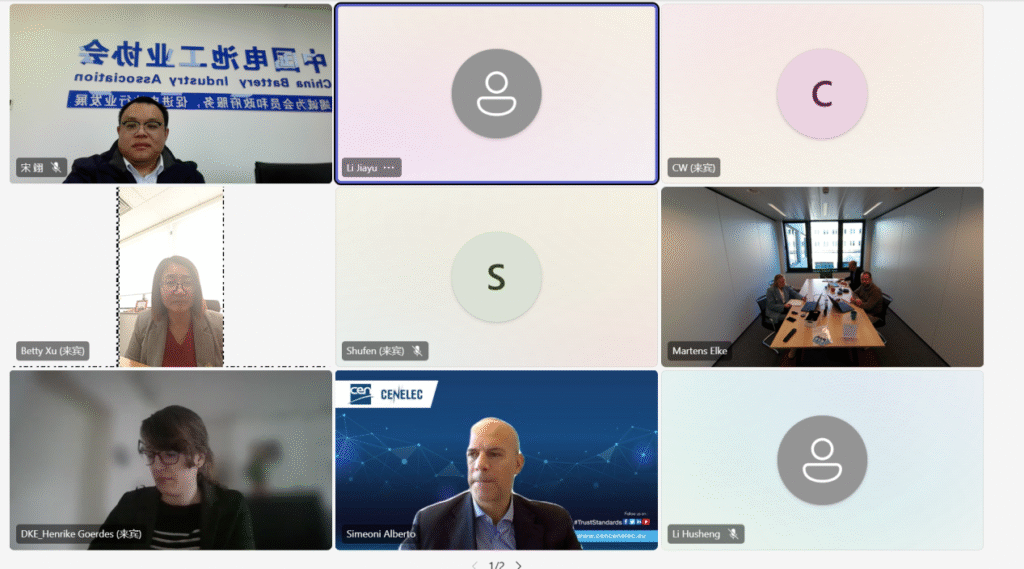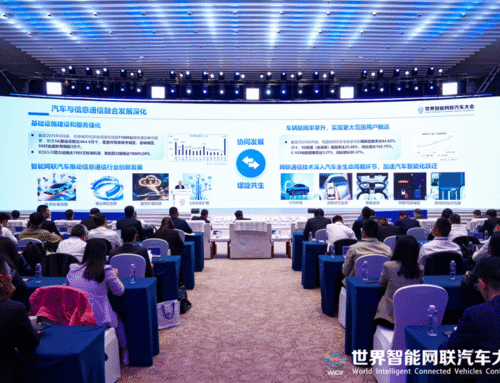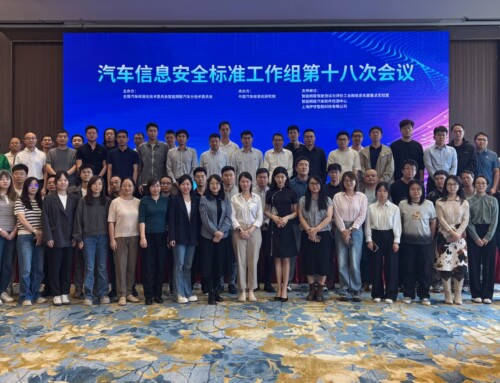
On April 1, 2025, the European Committee for Standardization and European Electrotechnical Committee for Standardization (CEN-CENELEC), the Seconded European Standardization Expert in China (SESEC), together with the German Commission for Electrical, Electronic and Information Technology (DKE) participated in an online meeting organized by China Battery Industry Association (CBIA).
Established in 1988 with the approval from the Ministry of Civil Affairs of People’s Republic of China, CBIA is a national industrial social organization voluntarily formed by enterprises, institutions and individuals from the battery industry and related field.
During the meeting, CEN-CENELEC and CBIA exchanged updates on their respective standardization efforts regarding digital battery passports.
CEN-CENLEC’s representatives, including Mr. Simeoni Alberto from European and International Policy shared that CEN-CENELEC aims to deliver 8 harmonized standards for DPP to Official Journal of the European Union (OJEU) by the end of 2025, in preparation for the implementation of the EU Battery Regulations in 2027. China has been closely monitoring the developments of the DPP in Europe, recognizing its importance in ensuring uninterrupted international trade in batteries. Integrating the DPP into China’s standardization system has become one of CBIA’s strategic priorities.
Mr. Song Yi, Director of CBIA’s General Business department, along with his colleagues from the association’s Digital Battery Passport Working Group, presented their standardization progress. They highlighted the Digital Battery Passport Pilot Program launched in 2024. The pilot program gathered 11 battery enterprises, aiming to explore the establishment of battery passport regulatory framework, formulate standards and assist enterprises designing battery passport.
In January 2025, CBIA published Data Security Technology-Guidelines for Data Classification and Grading of Power Batteries, marking the country’s first association standard aimed at regulating data classification, access rights, and system compliance within the power battery sector. In addition, CBIA also introduced 3 upcoming association standards for Power Battery Passports, which are currently open for public comments:
- Power Battery Digital Passport – Data Classification List
- Power Battery Digital Passport -Access Control Management
- Power Battery Digital Passport – System and Data Certification
CBIA anticipated submitting these association standards for approval in May 2025. The association also confirmed that China will incorporate ISO PWI 25534-1 Digital Product Passport-Part 1: Overview and Fundamental Principles in developing national standards in the future and will actively reference CEN-CENELEC’s standardization work.
In addition, CEN-CENELEC posed questions regarding the organization of the DPP in China. CBIA explained that the country is exploring a technical solution that integrates industrial internet and trusted data space technologies. This approach emphasizes efficient data aggregation, unique identification, trusted storage, and secure supervision. CBIA believed that DPP systems and data can be standardized separately, as data models are often industry- or product-specific and can be developed independently.
The meeting also covered discussion on data security, international interoperability and other potential areas for future collaboration. Both sides agreed that enhanced communication is essential for promoting standard harmonization for battery passport. As China’s battery passport is still in their early development, increased dialogue with European counterparts is expected to help the country establish a mature battery passport standard system more aligned with the European standards.




